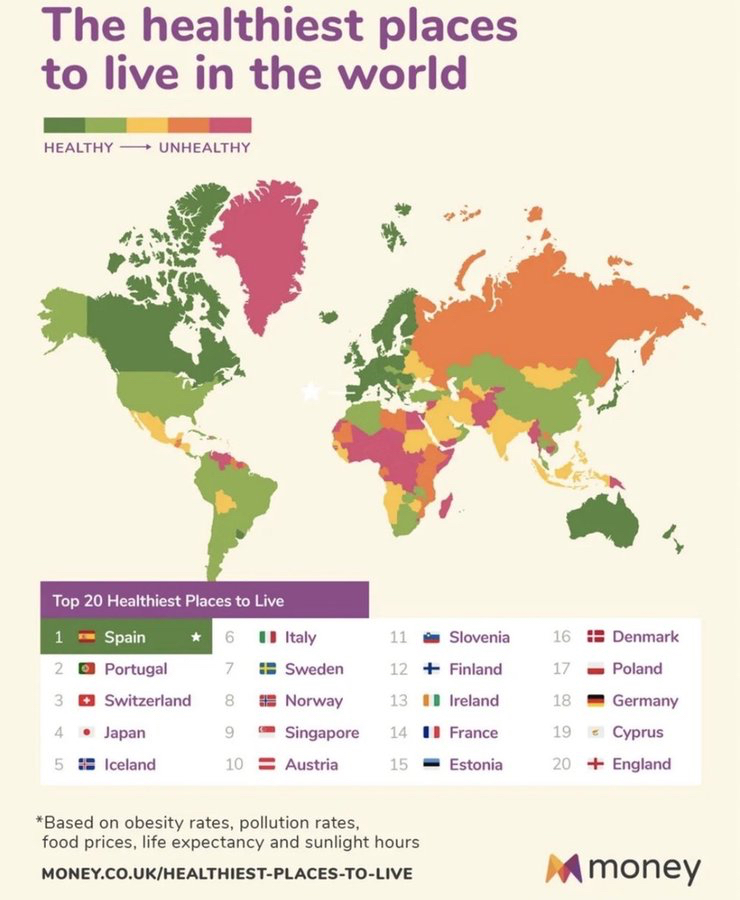I have been meaning to start a thread like this for many years. I thought it might be too provocative, but I see how many Americans themselves are dissatisfied with their own country and the situation seems to be getting constantly worse. To many outside observers it has been clear for quite some time that the US resembles a developing country with a substantial elite ruling class (about 5~10% of the population) that lives well in their own bubble (like a gated community but on a national scale), while the rest of the population suffers.
1) Economic inequality
The Gini coefficient is the most popular way to measure income and wealth inequality within a country. A high Gini coefficient means that most of the wealth in the country is held by a small percentage of the population. A low Gini means that the wealth is spread more equally. The Wikipedia page on countries by income equality shows that the USA have a Gini of 39%, similar to Iran or Congo, and in the range of most of Latin America. It's also well above all European countries, but also Canada, Australia, New Zealand, Japan or South Korea. From that viewpoint, the US failed to spread wealth well enough within its population and is in the same category as most developing countries, and indeed worse than places like Russia, China, India, Indonesia, Syria, Yemen, Ethiopia or Nigeria.
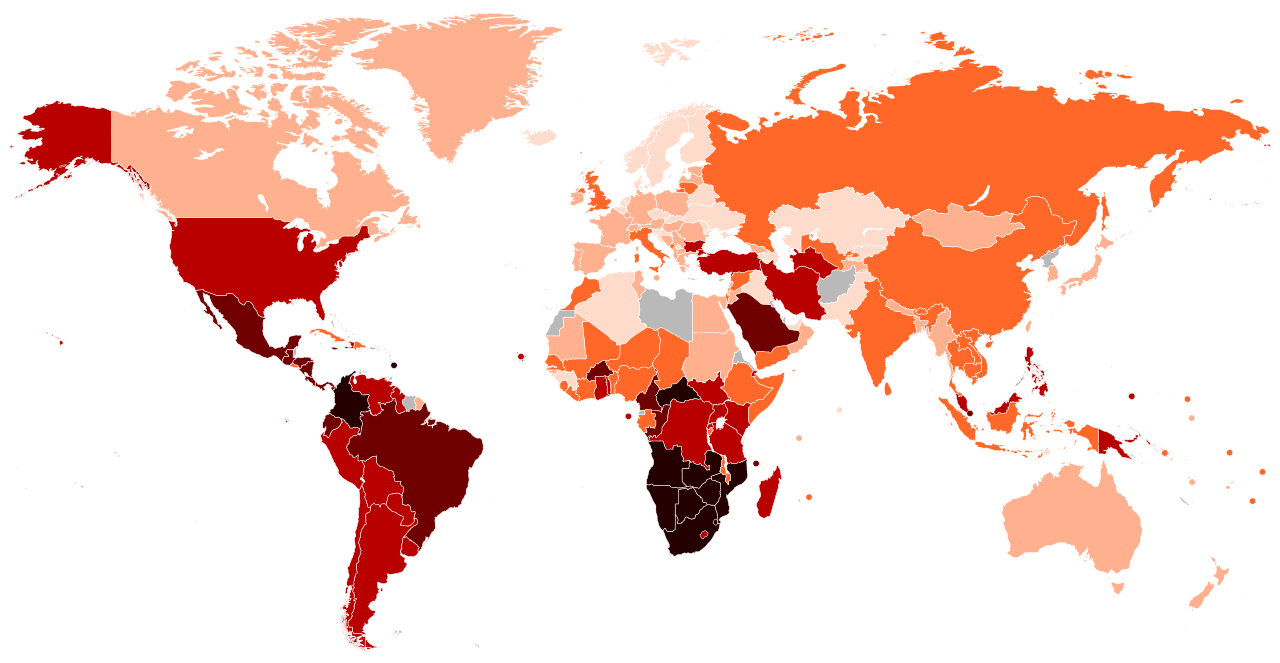
The United States are well above other rich countries for both wealth inequalities and income inequalities. These are two very different things though. For example, the Netherlands is the second most unequal developed country after the USA when it comes to wealth distribution (probably because there are lots of old families with inherited fortunes), but the most equal when we look at the share of job earnings taken by the richest 1% (CEOs don't earn 272 times more than their workers like in the US). For more details about this aspect of US society, please check the dedicated thread: Wealth & income inequalities in the US - what do the 1% own?
2) Human Development Index
The Human Development Index is a composite index that includes factors such as life expectancy, education (mean years of schooling completed and expected years of schooling upon entering the education system), and per capita income indicators. While the US has one of the world's highest GDP per capita, it only ranks 21st worldwide for Human Development Index and 25th (between Cyprus and Poland) once inequality-adjusted. Poland is still a developing country according to Wikipedia. That places the US right at the limit between developed and developing countries when it comes to Human Development.
3) Workers' rights
The ITUC publishes every year a Global Workers Rights Index. Countries are scored from 1 (best) to 5 (worst). Only European countries obtained a score of 1. Most Western European countries as well as Japan and New Zealand have a score of 1 or 2. Canada, Australia, Belgium, Poland and Bulgaria scored 3. The UK scored 4+. The United States scored 4-, alongside Greece, Romania and Hungary. A score of 4 means 'systematic violations of human rights'. 4- is also the score of Venezuela, Angola, Sierra Leone, Nigeria, Congo, Mali, Chad, or Saudi Arabia. The US is in good company.
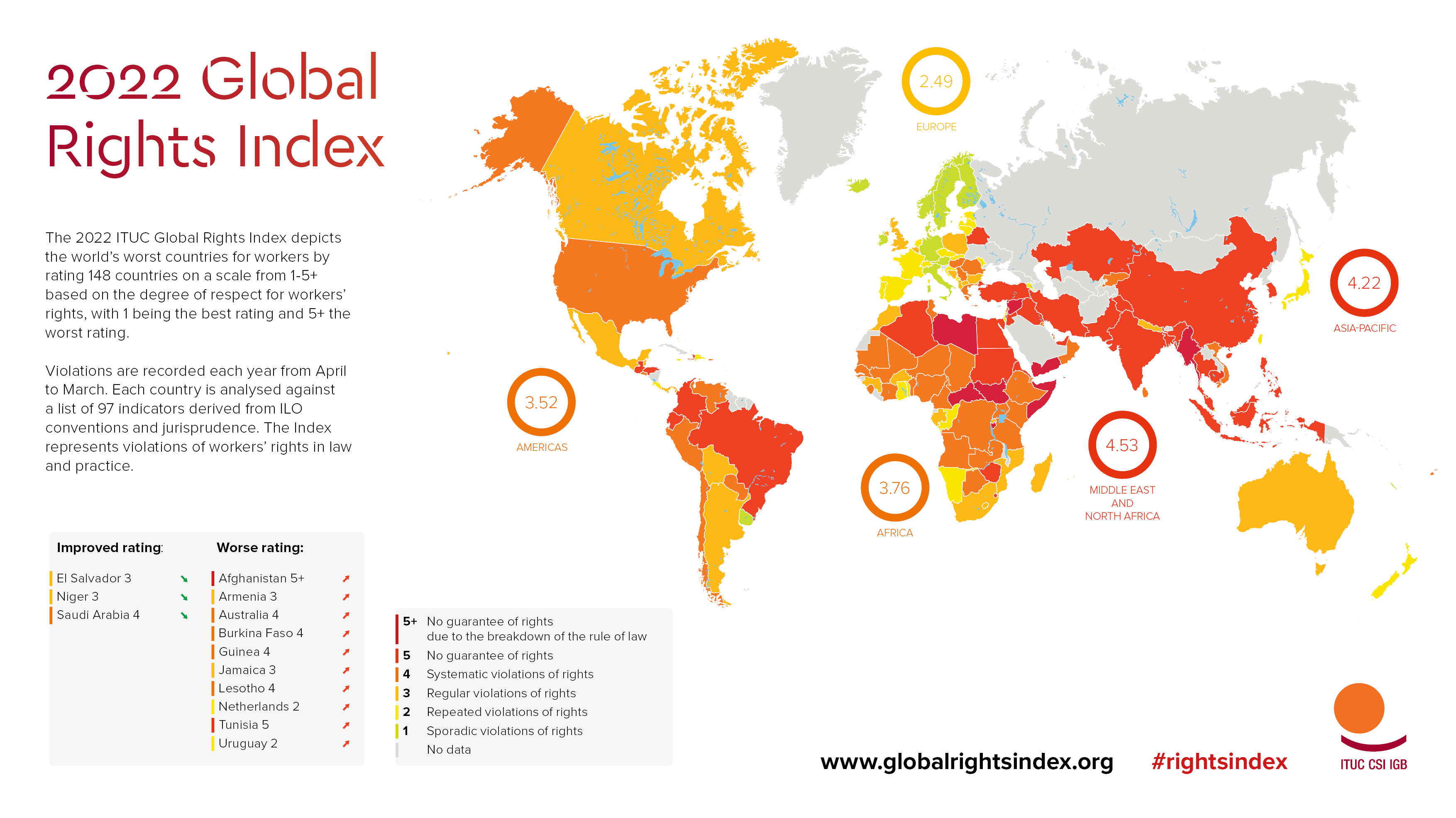
4) Minimum annual leave
In almost all countries in the world, people are entitled to a number of paid vacations. In fact, apart from a few tiny Pacific islands nations, the United States is the only country in the world that has 0 paid vacation days per year (source). The average in developed countries is between 20 and 30 days per year + 10 to 15 days of paid public holidays. The US is also one of the few countries where employers do not have to pay their staff on public holidays.
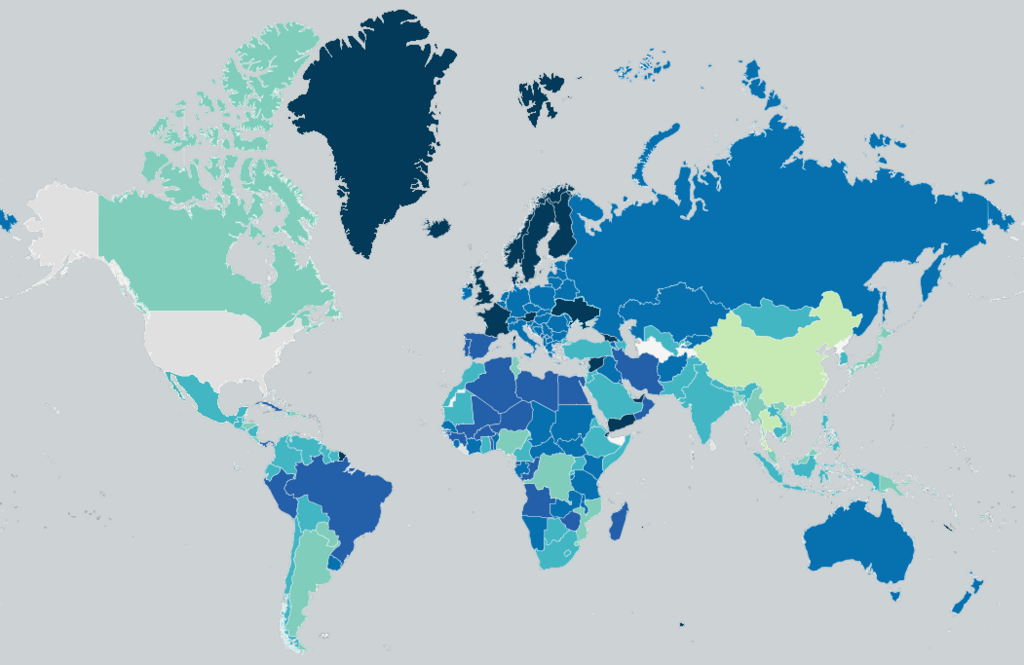
5) Maternity Leaves
One of the most widespread social rights in the world is that of women to take a maternity leave after childbirth. This right is enshrined in the legislation of practically all countries worldwide, even the most backward and sexist countries like Afghanistan, Iran or Saudi Arabia. Only a few countries have no paid maternity leaves: Papua New Guinea, Suriname, and the United States of America!

6) Homicide rates & gun laws
A picture says it all. The US is the only developed country with an intentional homicide rate above 4. It is actually 6.8 in the US. The worst in the EU is Lithuania at 3.7. Almost all Western European countries, as well as Canada, Australia, NZ and Japan are under 1.5. I want to say that the US murder rate is that of a poor country, but many poor countries have low murder rates. In Asia only Iraq does worse. Yes, even Afghanistan has a slightest lower murder rate than the US!
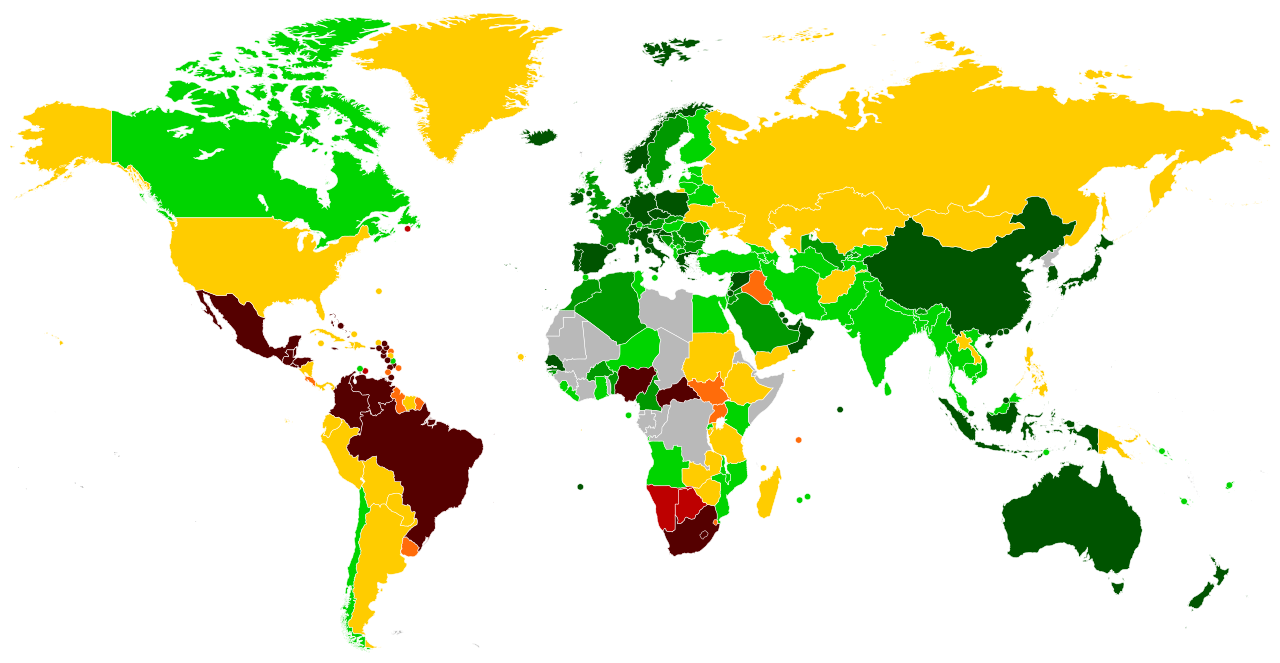
7) Age of criminal responsibility
Is a six year old child psychologically mature enough to understand the legal and moral consequences of his actions? Most people in developed countries would say no. In fact many people would consider it barbaric to send children to jail, whatever they have done. Yet most Americans disagree (except notably in California and Massachussetts). A majority of US states have no minimum age at all and would happily send a toddler to jail! In other states the minimum age ranges between 6 and 10 years old. The lowest age of criminal responsibility in the rest of the developed world is 10 in England, Wales, and Northern Ireland. The average in Europe or Japan is 14 or 15.
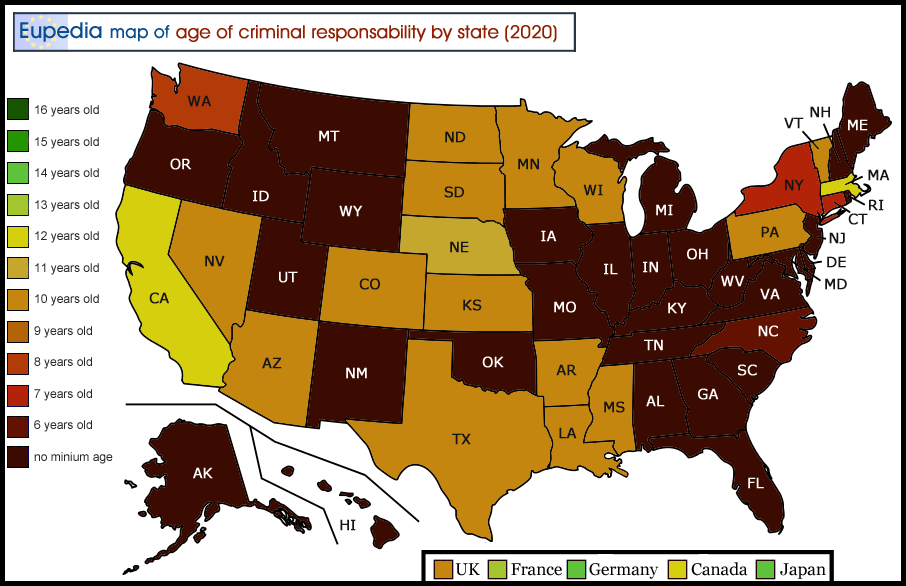
8) Corporal punishment
In virtually all developed countries corporal punishment in schools has been banned decades ago (usually in the 1960's or 70's). The US is the only developed country where it is still allowed in approximately half of the states (source).
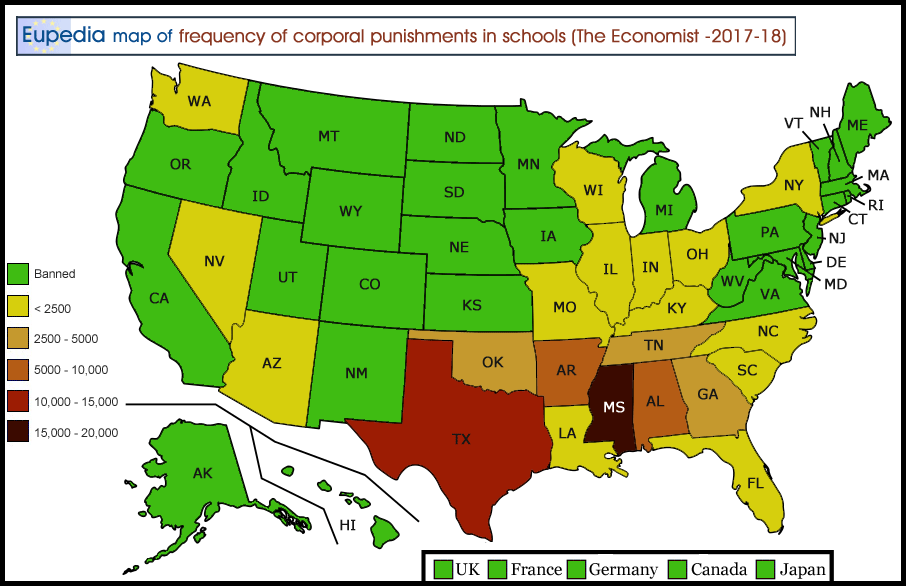
9) Life Expectancy
According to the CIA World Factbook (2022), the USA ranked 72th worldwide for life expectancy, behind even many Central American countries. Americans live in average several years less than their counterparts in other rich countries. At 78.3 years, Americans live about as long as people in Uruguay, Argentina, Paraguay, Slovakia, Poland, Lebanon, or Algeria, but less than in Cuba, Costa Rica, Albania or Kuwait. That's definitely in the (upper) range of a developing country.
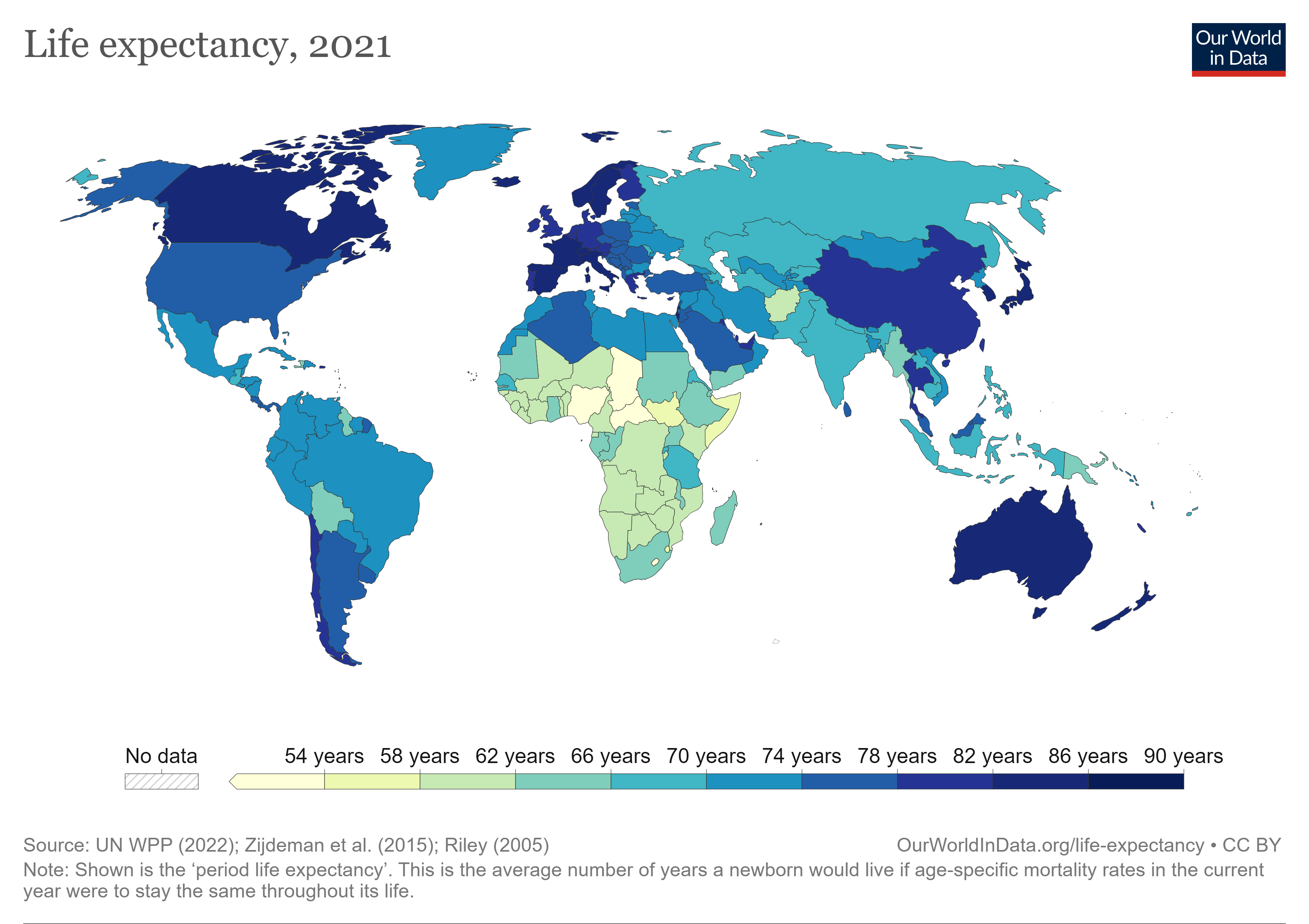
1) Economic inequality
The Gini coefficient is the most popular way to measure income and wealth inequality within a country. A high Gini coefficient means that most of the wealth in the country is held by a small percentage of the population. A low Gini means that the wealth is spread more equally. The Wikipedia page on countries by income equality shows that the USA have a Gini of 39%, similar to Iran or Congo, and in the range of most of Latin America. It's also well above all European countries, but also Canada, Australia, New Zealand, Japan or South Korea. From that viewpoint, the US failed to spread wealth well enough within its population and is in the same category as most developing countries, and indeed worse than places like Russia, China, India, Indonesia, Syria, Yemen, Ethiopia or Nigeria.

The United States are well above other rich countries for both wealth inequalities and income inequalities. These are two very different things though. For example, the Netherlands is the second most unequal developed country after the USA when it comes to wealth distribution (probably because there are lots of old families with inherited fortunes), but the most equal when we look at the share of job earnings taken by the richest 1% (CEOs don't earn 272 times more than their workers like in the US). For more details about this aspect of US society, please check the dedicated thread: Wealth & income inequalities in the US - what do the 1% own?
2) Human Development Index
The Human Development Index is a composite index that includes factors such as life expectancy, education (mean years of schooling completed and expected years of schooling upon entering the education system), and per capita income indicators. While the US has one of the world's highest GDP per capita, it only ranks 21st worldwide for Human Development Index and 25th (between Cyprus and Poland) once inequality-adjusted. Poland is still a developing country according to Wikipedia. That places the US right at the limit between developed and developing countries when it comes to Human Development.
3) Workers' rights
The ITUC publishes every year a Global Workers Rights Index. Countries are scored from 1 (best) to 5 (worst). Only European countries obtained a score of 1. Most Western European countries as well as Japan and New Zealand have a score of 1 or 2. Canada, Australia, Belgium, Poland and Bulgaria scored 3. The UK scored 4+. The United States scored 4-, alongside Greece, Romania and Hungary. A score of 4 means 'systematic violations of human rights'. 4- is also the score of Venezuela, Angola, Sierra Leone, Nigeria, Congo, Mali, Chad, or Saudi Arabia. The US is in good company.

4) Minimum annual leave
In almost all countries in the world, people are entitled to a number of paid vacations. In fact, apart from a few tiny Pacific islands nations, the United States is the only country in the world that has 0 paid vacation days per year (source). The average in developed countries is between 20 and 30 days per year + 10 to 15 days of paid public holidays. The US is also one of the few countries where employers do not have to pay their staff on public holidays.

5) Maternity Leaves
One of the most widespread social rights in the world is that of women to take a maternity leave after childbirth. This right is enshrined in the legislation of practically all countries worldwide, even the most backward and sexist countries like Afghanistan, Iran or Saudi Arabia. Only a few countries have no paid maternity leaves: Papua New Guinea, Suriname, and the United States of America!

6) Homicide rates & gun laws
A picture says it all. The US is the only developed country with an intentional homicide rate above 4. It is actually 6.8 in the US. The worst in the EU is Lithuania at 3.7. Almost all Western European countries, as well as Canada, Australia, NZ and Japan are under 1.5. I want to say that the US murder rate is that of a poor country, but many poor countries have low murder rates. In Asia only Iraq does worse. Yes, even Afghanistan has a slightest lower murder rate than the US!

7) Age of criminal responsibility
Is a six year old child psychologically mature enough to understand the legal and moral consequences of his actions? Most people in developed countries would say no. In fact many people would consider it barbaric to send children to jail, whatever they have done. Yet most Americans disagree (except notably in California and Massachussetts). A majority of US states have no minimum age at all and would happily send a toddler to jail! In other states the minimum age ranges between 6 and 10 years old. The lowest age of criminal responsibility in the rest of the developed world is 10 in England, Wales, and Northern Ireland. The average in Europe or Japan is 14 or 15.

8) Corporal punishment
In virtually all developed countries corporal punishment in schools has been banned decades ago (usually in the 1960's or 70's). The US is the only developed country where it is still allowed in approximately half of the states (source).

9) Life Expectancy
According to the CIA World Factbook (2022), the USA ranked 72th worldwide for life expectancy, behind even many Central American countries. Americans live in average several years less than their counterparts in other rich countries. At 78.3 years, Americans live about as long as people in Uruguay, Argentina, Paraguay, Slovakia, Poland, Lebanon, or Algeria, but less than in Cuba, Costa Rica, Albania or Kuwait. That's definitely in the (upper) range of a developing country.

Last edited:











